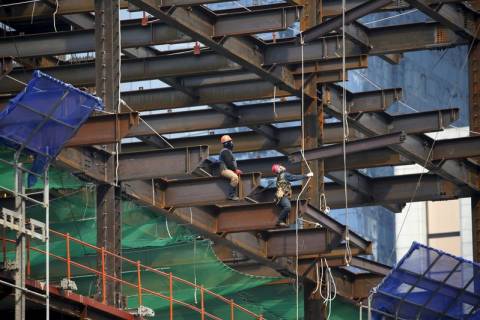SEOUL (Reuters) - South Korea's factory activity shrank in July for the first time in nearly two years, as output and new orders weakened amid continued inflation and supply chain woes, a private-sector survey showed on Monday.

The S&P Global purchasing managers' index (PMI) fell to a seasonally-adjusted 49.8 in July from 51.3 in June, falling below 50 for the first time since September 2020. The 50-mark separates expansion from contraction in factory activity from a previous month.
Output fell for a fourth straight month and by the sharpest rate since October 2021, as new orders decreased for the first time in 22 months and those from overseas for the fifth month in a row.
South Korean manufacturers reported that strong inflationary pressures and sustained supply chain disruption had hindered production and demand at the start of the third quarter, said Usamah Bhatti, economist at S&P Global Market Intelligence.
Higher prices for inputs including fuel, metals and semiconductors meant that the disruption was broad-based across the manufacturing sector.
There were, however, signs of price pressure peaking out. The rising pace of input prices and output prices softened to the slowest in four months and seven months, respectively.
Suppliers' delivery times, which show the degree of disruption, deteriorated, but by the least in four months.
Manufacturers remained optimistic over the coming year for output, but the level of optimism was the weakest since October last year.
(Reporting by Jihoon Lee; Editing by Sam Holmes)
